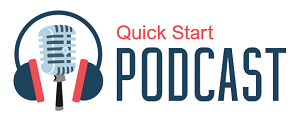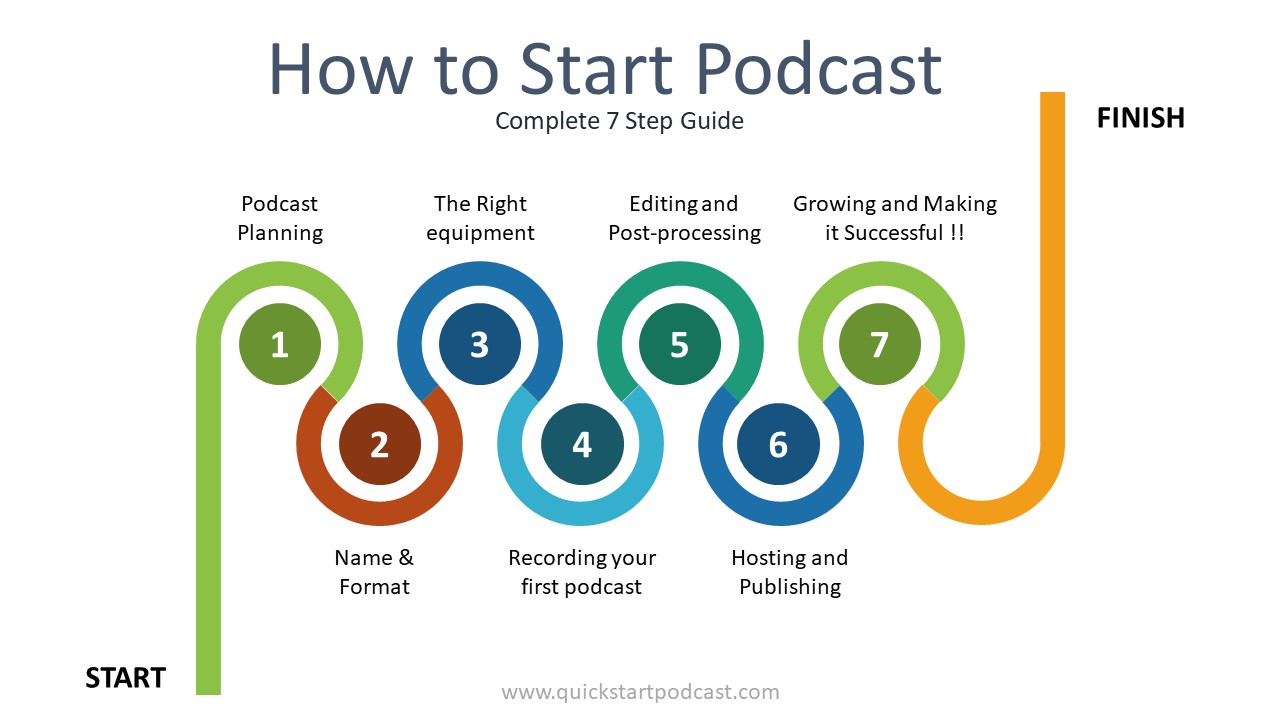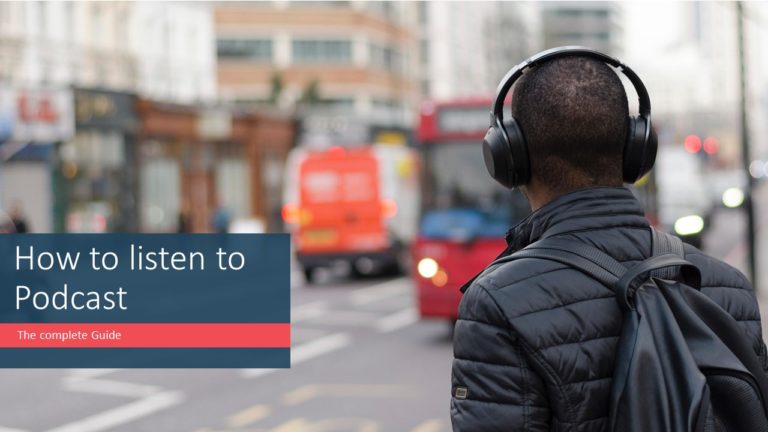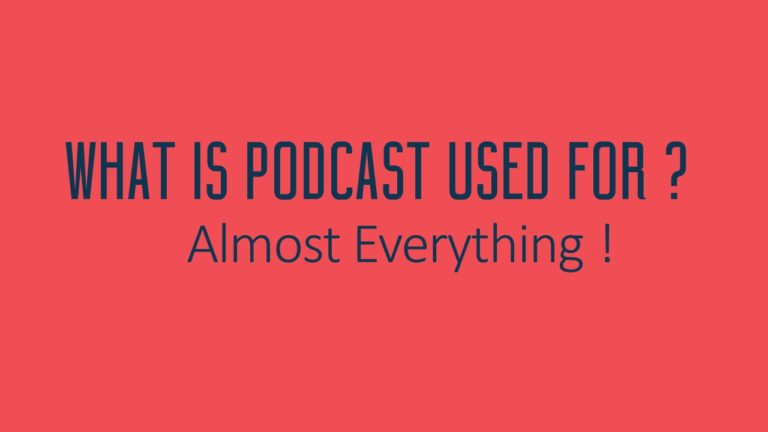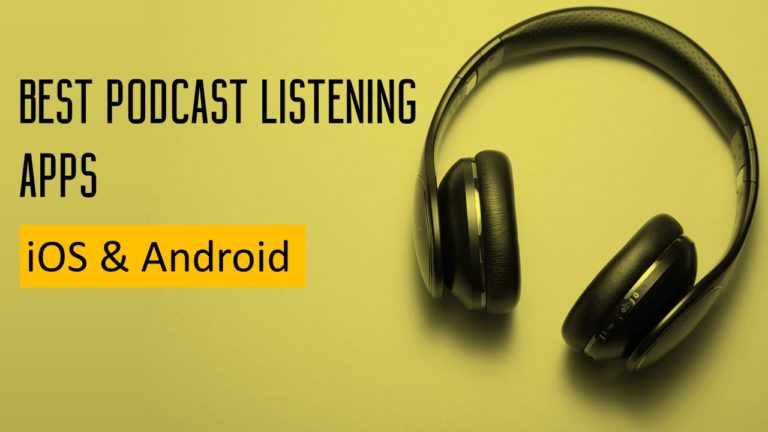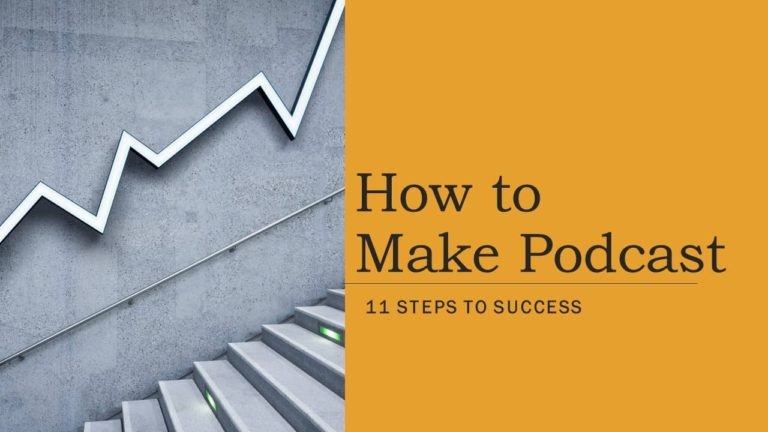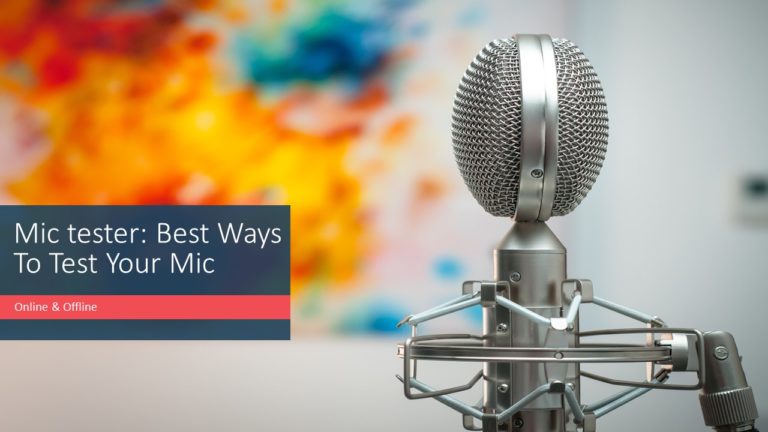How to Start Podcast in 2021: Simple 7 Step Guide
We are assuming that you are here as you want to start a podcast of your own and need to know where to start. Well, this step by step guide will answer all your queries on How to Start Podcast.
From the process of planning, finding the right topics, selecting the right equipment, recording and processing the podcast, finding the right host and finally to make your podcast a success!!
We will try and cover all aspects of making a podcast in as much detail as possible.
Here are 7 simple steps to Start a Podcast in 2021.
- Plan your podcast
- Select the name and format for your podcast
- Select the right equipment
- Recording your first podcast
- Editing and post processing
- Finding the right host ad publishing your podcast
- Making your podcast success and earning money from your podcast !!
Step 1 : Plan your podcast
The planning process deals with answering some fundamental questions such as why you want to start a podcast, what should be the topic , what should be the name , what should be the length and frequency of my podcast.
Below are the articles if you want to learn in detail about the planning process.
Popular Podcast Formats People Love To Listen | Podcast Format & Episode Structure : Best Options ! |Podcast Topics: Selecting Your Podcast Niche
Why you want to start podcast?
Your motivation to podcast is going to be what keeps you committed to creating your show. When you are pure on your motivation, you will be free to let your passion for the subject matter shine through. Ultimately, it is your passion that will “sell” your show.
Most successful podcasters are creating podcasts because they are genuinely passionate about their subject matter. Whatever the topic is, they love it.
Passion for their show is radiating out of them. They will spend a lot of time and personal money (to begin with at least) to create the podcast that they love and can entertain / educate their audience.
If you have no passion for your planned podcast, no true love of it, then please don’t start.
It will be too much work to manufacture the energy to do a podcast show week after week, and believe us, the show will never be a success over a long term.
Start a podcast if you love it, money will follow.
For whom you want to start the podcast.
Once you are clear about your motive to start a podcast, having the right idea about your audience is the next most important thing.
When people talk about podcasts and what they like about them, then one thing keeps coming up again and again. No matter what type of podcast it is, it can be a talk show, a technical podcast, a comedy show it can be anything.
If there is one thing common about all successful podcasts, then that is Connection with the audience.
Audience will rather listen to something that they connect to which is poorly produced than something that has a high production value but has no connect.
Having an honest connection with your audience is probably the most important thing to make your podcast a success.
For all this to happen you must first know who are your listeners?
Ask these questions to yourself to determine who your listeners are. The topic of your podcast, the format of it, the design of the podcast everything will get decided by the answers to these questions.
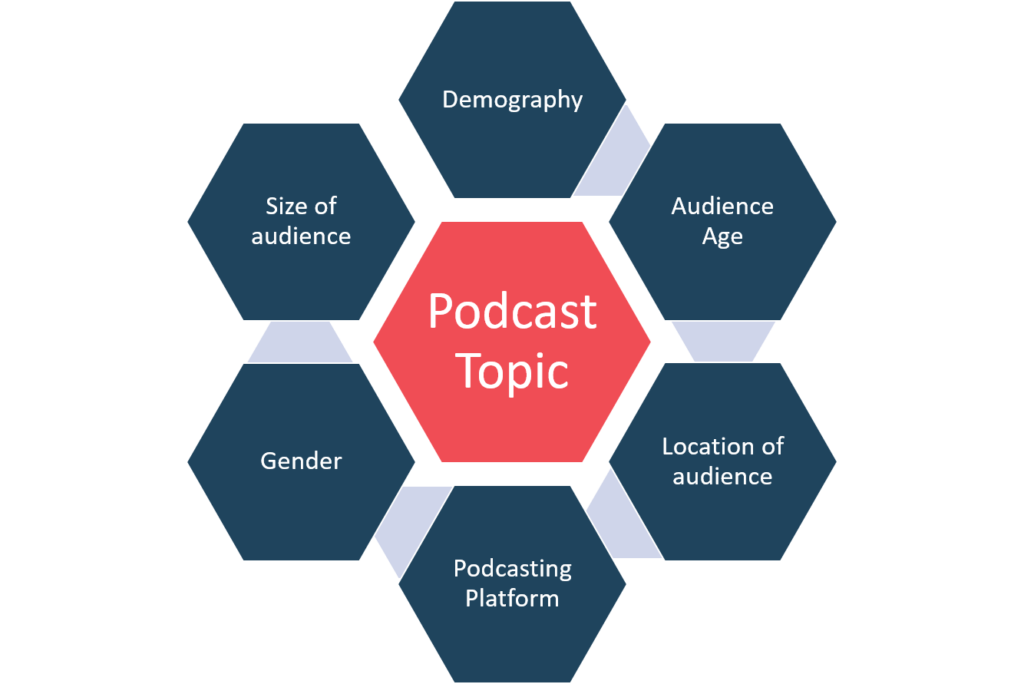
The topic of your podcast will largely decide the answers to these questions.
- Is your podcast going to entertain, provide information or educate someone?
- Is your podcast age dependent? is it more likely that people of particular age group will listen to it?
- Is your podcast location dependent? What location if yes?
- Do you expect your podcast to attract both male and female audience?
- What is the platform you plan to make your podcast available from? Android / iOS or something else.
This is known as audience profiling, if you can have the right idea about your audience profile then it will be very easy for you to select the right topic, format and design of your podcast.
Selecting the topic for your podcast
To start zeroing down on the topic for your podcast. You can first start with a big list with generalized ideas or topics or areas of interest.
You can also use some of the below questions to arrive at a particular topic in a more scientific manner.
- What do I enjoy the most?
- What subject am I passionate about?
- What topics can I speak about as an expert?
- What are subjects that people seek me out for?
- What do I do for fun?
- What topics do I have a lot of fun talking about?
Once you answer all these questions you will be much closer to your final topic for your podcast. If you still end up having two or three topics in front of you, then you can consult with your friends and family members. Ask them what they would like to hear from you? what they believe you will be good at?
You can also use a table with some decision-making parameters and give scores for each topic against these parameters. The one with highest score will be an obvious choice.
If you plan to monetize your podcast in future, then you may also want to throw in some additional parameters such as marketability of the topic, possible advertisers, possible opportunities for affiliate marketing, possibility of creating info products or training courses on the same topic , spending power of your intended audience etc.
As in many cases in life, no matter what process you follow, the best idea will be to go with your gut feel, go with your passion. Everything else will fall in place automatically.
Popular Podcast Niches in Today’s World:
There are many popular niches for podcasting, the most important niche is however, the one you like. Many niches are kind of all time popular due to the sheer size of possible audience.
These are niches which also have a lot of competition and one must be careful before starting a podcast in these niches. Unless and until you are offering something new and creative to the audience, your chances of success are very less.
All-time favorite niches for podcasting.
- Tech: Reviews and talk shows and discussions about technology in general or technology products
- Health and fitness: Weight loss, weight gain, general health and fitness, child health, elderly people health etc.
- Personal Finance: Personal financial services, passive income ideas, investing, trading etc.
- News: All types of news, local news or news on specific product or topic sell more
- Sports: Sports training, tutorials, news etc.
- Self-improvement: Personal planning, time management, psychology etc.
- Motivational
- Business: Business communication, product launch etc.
- History
- Facts or trivia
- Stories: One of the most popular niches, investigation, thriller, crime , fiction etc.
- Comedy: one of the most competitive but still popular niches
- Culture
- Music
- Animals
- Religion and spirituality.
- Politics
How to plan your podcast ?
Planning is an essential part of any creative process. This may sound ironic, but creativity and planning go hand in hand. Even the biggest Hollywood movies are planned to the last detail no matter how creative the director or actors may be. Planning gives you a structure and schedule to work with.
Podcast planning starts with accumulating as much information about the topic as possible and segregating it into meaningful sections / buckets of information. There are many who think that one need not plan the complete season of the podcast and you should approach it episode by episode. That is true for some formats of podcasts and some specific niches.
However, most of the successful podcasts will tell you that it is important to plan your entire season episode by episode upfront. It gives you immense clarity of things to focus on, research about and also talk to your audience.
Some people also follow calendar-based planning especially if their episodes have some seasonality or they want to take advantage of some specific days such as movie releases, holidays , elections , sports events etc.
Plan the season
In this phase you will generally plan the outline for the entire season. This means you will decide the total number of episodes in the season and the frequency of the episodes as well.
In case you plan to start a podcast where you want to interview people, then planning the entire season becomes even more crucial and difficult also. Planning the dates of your guests is really important to ensure that you and your guests get sufficient time to prepare and you can also announce the name of the guests in advance to your audience to build some momentum for your episodes.
Monthly plan
Once you have planned the entire season , its now time to make a monthly plan. First thing to do will be to take a calendar and mark your episodes for upcoming months.
A monthly plan can help you to cover a particular theme within your topic or a sub theme. A month will generally have 4 to 8 episodes for a normal podcast show. You can note down the topics for all these episodes and plan your preparation and research on this monthly plan.
Weekly Plan
Weekly plan helps you to outline and prepare for episodes within a week. This is kind of detailed plan coming down from entire season to monthly to finally weekly plan brings in complete clarity about the entire show to yourself. This can really help the actual execution and accelerate the preparation.
Plan individual episode
Planning individual episodes is a completely different and an important process and we have a separate article about that.
Planning individual episodes deals with the actual script , music selection , interview questions and a lot more. It’s actually laying down the entire episode without speaking a single word in mic.
Determining your podcast’s length and frequency
The length of your podcast and how frequently you get your episodes out can have a major impact on the success or failure of your podcast. This is especially true for certain topics and niches where too long podcasts or too infrequent podcasts can become a problem and vice versa.
Length of your podcast show:
Once they get over the initial growing pains of the first podcast or two, most podcasters feel they could talk on and on for hours. But a longer show is not necessarily a better show.
Time and again it has been said by many successful podcasters that 15 to 30 minutes is the right length for a solid podcast show. A shorter show has more chance of success than a longer one.
Podcasts are popularly listened to while driving to office or back home. A 15 to 30-minute show is also ideal from that point f view.
To summarize the length of the show should ideally be as short as possible to cover the content in best possible way. If you really have a lot of content and it is must to cover it in one episode then you can opt for a longer episode or else 15 to 30 minutes are ideal and most popular also.
Frequency of your podcast show
Frequency of podcast basically means how many times you release a new episode . It can be daily or every two days or weekly or any other time frame. It is also not necessary to have a definite frequency and you may release your episodes randomly.
There is generally a relationship between the duration of your podcast and frequency of your podcast. The more frequent podcasts tend to have smaller duration while less frequent podcasts have longer duration. This is not a rule, but it makes sense!
| Podcast frequency | Episode length |
| Daily | 15 to 30 minutes |
| Weekly | 15 to 60 minutes |
| Fortnightly | 60 to 90 minutes |
| Monthly | 60 to 90 minutes |
Selecting the right name and format structure
If selecting podcast show name was daunting and time consuming for you, then you should really pay attention to this topic. Finding good episode titles can be time consuming and frustrating sometimes. It can be made simpler if you follow some basic rules or guidelines.
Guidelines for good episode titles
Popole discover your episodes through search engines and it is important for the episodes to be search engine friendly. They also need to be descriptive, catchy and should be able to communicate your episode content.
Let’s take a look at some basic rules or guidelines for episode titles.
Search engine optimized episode titles
Most of the listeners who have a topic in their mind will go to the podcast search engines such a iTunes library and search the topic. The search engines will present them with the matching episodes. This matching is done on the basis of the title tag of your episode.
A search engine friendly title needs to be descriptive in nature and should have in general the terms related to the topic. It should not be keyword stuffed. In fact, a keyword stuffed title gets negative score by the likes of Google or Apple search engines.
Most of the search engines follow semantic searches these days and filling your title with keywords does not make any sense anymore.
Name of the topic with some description is the ideal way to title your episodes. You can do some research by searching the topic yourself. Find out what is getting ranked and how the episode titles are structured. You need not copy but you can certainly get some inspirations.
For a podcast on topic of best lenses for flower photography.
The title can be, Flower Photography: Best Macro Lenses to photograph the flowers.
Descriptive episode titles
The podcast episode title needs to be descriptive. Many people make mistake and give cryptic titles and use short forms in their titles. This will have negative impact on your download rate.
Catchy and compelling titles
If your episode title has a catchy or power word, then chances of download are more. Using word such as BEST, TOP, LEARN, GREAT, FIND OUT, BUDGET, HOW TO, HOW CAN I etc generally attracts the listeners.
You can google to find many such words and include it in your title to attract the listeners. The idea is to have a title compelling the users to click and listen.
There are different type of podcast structures such as Episodic podcasts, interview type podcasts , product review type and news podcasts etc .. you can select the right structure for your podcast based on your needs.
Selecting your podcast format
There are many popular podcast formats. There are not episode formats but an overall podcast format. Here is the list of 7 formats that you can select from to start with. You can always create your own version of it but its s a good starting point.
Interview Podcast Format:
An interview style podcast generally has a host and a guest who is being interviewed. The guest brings in his/her experience or expertise on a topic of discussion.
After an initial round of introduction and some information about the guest to the audience , the conversation on the topic begins. Host will lead or guide the conversation by asking questions about the topic. Many times, the audience has already mailed some questions on the topic that they want answer for , host acts as a middleman to get that information to them through this interview.
In some cases, the interview can be not on a topic but to get to know the guest better from audience point of view or more personal in nature than professional.
One particular podcast season can have guests related to a particular theme , this helps the audience to select and download what they want.
This is a very popular podcast format but at the same time involves a lot of work. Needs a good setup with multiple mics and recording equipment , needs to arrange the guests and match their timings , preparation for interview is also a key.
Generally, these types of podcast run once a week for about 30 to 60 minutes.
Solo or Monologue Podcasts
This is by far the most common type of podcast format and also very easy for beginners. Nothing much is required in terms of equipment , you just need a mic and free recording software and you are good to go.
You need some knowledge on a topic or some kind of expertise or skill which people are interested in. You can decide everything and just start recording.
You can decide when to record , what to record and when to air an episode. This is why this podcast format is the most popular , it gives you complete freedom.
Educational Podcast Format
This can either one of the above two formats. It can be a mono podcast if you are the expert and you are giving some kind of education to people interested in this topic.
In some cases, you can call guests and do the session together in a question answer format or a discussion format. The idea here is education and not entertainment and show must be focussed on that topic.
Conversational/Co-Hosted Podcast Format
This is another common podcast format. It involves two people known as co-hosts having a conversation on a topic , they generally have a good chemistry and run the show in a cheerful manner.
Unlike interview podcast format, both of them are hosts and take specific roles to run the show. Both have their responsibility during the show and sometimes time as well.
In many cases, each host will play a specific role in the conversation. One might report the news roundup while the other provides explanation or brings a comic sense. One might tell stories while another draws inference from them etc.
This type of show needs a bit more equipment and investment but is a little easier to conduct. One person does not have to talk continuously, and the overall show is more conversational and easier on ears. It can also bring out different perspectives on the same topic which help listers.
The Panel Podcast Format
A panel podcast format is similar to an interview podcast, but with more people involved in the show. Each episode has a single host and many guests.
Storytelling Podcast Format
This can be further subdivided into nonfiction and fiction storytelling.
News and Review Podcast Format
This is also a popular podcast format. It involves a single or multiple host taking a roundup of news on a particular topic or location. Tech reviews , movie reviews , sports roundup etc.
Content is not a problem and such podcasts can run multiple times a week as well. Since a new movie is coming out every week , a new game is being played every weekend , a new product getting launched every day there is a lot to cover.
The only downside is the life of the show is very limited and the content will get dated very soon. People are not going to listen to old news by downloading your podcast and hence active userbase is the key here.
Now that we know about podcast formats let’s take a closer look at episode structure.
A Typical episode structure
The podcast is not something that runs continuously throughout the day. It has a definite time duration, 15 to 60 minutes in general. It is better to have a beginning section , a middle section and an ending section for your podcast.
As you are developing the format for your show, keep in mind that your show is a podcast, not a radio broadcast. People who depend too heavily on radio as a model for their podcast find themselves breaking up podcast segments with music and then reintroducing their guest or topic, as is always done in radio.
They do this in radio because radio is live, so listeners don’t necessarily hear every moment of the program. Podcast listeners are there from the beginning of the program to the end, so reintroducing guests or topics is not necessary.
The beginning section of podcast:
The beginning of a podcast will generally be some intro music , introduction to your podcast and what you are going to cover in that particular show. Depending upon the type of your podcast the beginning section can also have some news round up , round up of emails from audience etc. select what best suits you.
The beginning section should generally not be more than 20% of your total podcast length. Too long an entry section can bore the audience as they are eager to get to the meat of the show. In many cases podcast listening tools provide ways for people to skip a definite time at the start of the podcast and go to the main part directly.
Unless and until your beginning section is interesting and useful to the audience, people will skip it and go to the middle section which is supposed to be the main part of the show.
There will be many who have downloaded your podcast for the first time and this section of the podcast will create the first impression for them to decide whether to continue or not.
The middle section of podcast
This is the main section of the podcast, after a short introduction of what you are going to cover in the podcast the main section must live up to its expectations.
This is the part of the podcast that audience is really interested in. Depending upon the format of your show it can be the actual movie review, all the main news in detail , the interview of your guest etc.
Middle section should just be you speaking with the audience and establishing a connect, once should avoid any music or commercials in this part of the show as it may not be liked by the audience.
Make sure that you have enough material with you to do justice to this part of the show. The success of the podcast depends upon how well you carry out this part of the show.
The end Section of the Podcast:
The end suction is generally a summary of the todays podcast and some little bits about what to expect next time to build some suspense for the audience.
You can also do some marketing stuff in this part of the show, share your website address or ask people to visit your affiliate targets etc.
Outro music is also very popular at the end of the show.
Selecting the right equipment
Selecting the right equipment is probably the hardest task. It is always more advisable to spend little less money to start with and then go on adding higher-end equipment as you go along. This way you can plan to spend your podcast cost.
So, before you spend your money on a lot of equipment and software and everything else. Let’s look at various options of creating a podcast from the smallest amount of budget, which is almost free to a more professional setup costing a few thousand dollars.
The first thing that you need to decide is whether you want to do it as a hobby, or you plan to do it as a business for regular income source. If it just a hobby and you do not plan to spend a lot of money on it then you should go with an almost free option.
If you plan to do it as a business or as regular income source, and you want a more professional look and feel to your podcast, then you may have to spend a bit more money. But then you can always make money out of that podcast.
One can create a podcast at different budget levels. You can start with a budget of a hundred dollars or as high as a $2,000.
You will need a microphone, pop filter, and audio interface or mixer, a stand etc. depending on your budget you can select various categories of equipment’s.
Please read below articles to make the right decisions on your equipment.
Recording your first podcast
Recording equipment is only one part of the podcast recording process. You will need a recording software such as Audacity or Adobe audition in order to record your podcast. You can make the choice based on your budget.
You will also need a quiet place to record your podcast. You can find a quiet corner of your house or incase you plan to do it professionally; you can also do it in a studio.
We’re now going to be talking about recording your podcast episodes, more specifically, sort of what to put in your episodes and tips for recording.
TIP 1 : Maintain Constant Distance from Mic
And the first tip I want to give you, which is really important, while I have you here in the intro is to always be consistent with where your mouth is relative to the mic. I even have this issue sometimes.
You know, during the recording, I’ll tend to drift away from the mic or look away, and that’s going to directly reflect in the sound quality of your episode.
You want to stay consistent throughout the whole recording. For me, I always know to have the tip of my nose or the tip of my lips touching the pop filter.
TIP 2: Right Sound levels
You can kind of see your sound level when you’re recording. You know, it’s the green, the yellow, and the red light or bars that light up to red, depending on how loud you are.
There’s one basic rule of thumb here. Do not go red. You do not want to record in the red. Because once you go red, you can’t go back.
You’re better of recording in the green and the yellows than it is to go in the reds, because if you’re green and yellow, you know you can bump up the levels in your software.
Now, the basic rule that you want to do is you want to try and get as close to red as possible without actually getting into it.
TIP 3: Length Of the Episode
You know, how long should my podcast episode be? Now, this is actually a pretty common question for any sort of publishing platform. You know, how long should my book be? How long should be videos be, my blog posts, blah, blah, blah?
You know, the answer to all those questions is as long as it needs to be. That’s the simple answer. You know, how much time do you need to get across your message that you’re trying to get across?
You don’t want to hit 20 minutes with one episode and then five minutes the next and then one hour the next one. You know, you want to have a nice rhythm going for you and also for your listeners so that they sort of know what to expect and know how much time to allot for listening to your show in the future.
TIP 4: The perfect Introduction
You know, I think intros to shows are really important, and I definitely recommend including some type of intro at the top of your show. It’s great for branding purposes, but there are different ways to approach it.
And again, just to reiterate, this is your show. You can do whatever it is that you want to do with it. You know, you have complete freedom here. But here’s some different ways people go about starting their show.
Now, as with any sort of presentation-type stuff, whether it’s a blog post, podcast, video, or even live presentations, the number-one best thing you can do at the top or somewhere in the beginning is to just tell them, you know, simply just tell your listeners, your readers, whoever, tell them what they’re going to listen to.
Tell them what it’s about. You know, it helps them understand what to expect, and also, it gives them something to look forward to. You know, some people actually include a nice little teaser, specifically to keep people listening all the way through.
TIP 5: The perfect Exit
Your outro is very important. I see a lot of podcasters missing the ball on this once. You know, it’s the last thing. It’s the last thing that people remember when they’re listening to you.
So, what do you do? You provide a call to action. It’s as simple as that. Don’t forget to include a call to action at the end of your show.
Keep the engagement going. You know, they’ve listened to you for x number of minutes, and they made it to the end. So, your listeners are prime for you to tell to do something.
You know, subscribe to your list, purchase something, leave a review or subscribe, which is helpful for your rankings in iTunes.
Go to your website for something. Call to action. You know, it’s so important. You know, you can keep it the same for every episode if you want to, but I actually recommend changing it up every time, just so that it’s something different and people who listen to other episodes, you know, maybe they already subscribe to your email list, so you want to give them something new.
Music for your podcast
There are many websites that have music that you can use on your podcast without any legal issues. This type of music is known as royalty free, stock, or library music.
It’s possible to find free music if you search for ‘creative commons’ licensed music, but it’s often very commonly used and not the best quality.
There are also varying levels of creative commons licenses. Some are very liberal, whilst others ban you from using that music for commercial purposes. Always check the source site and make sure you have permission to use a particular piece of music.
Usually you can pay a one off fee for a song which entitles you to use it on your show, or you can now get subscriptions that give you access to a huge library.
Editing and post processing
Editing and post processing can be a bit daunting. If you have never edited before then, it may take a while for you.
In editing you need to remove all the unwanted section of your audio recording and give a good flow to the overall episode. You will also need to remove any background noise that might have creeped in to the recording.
Adjusting the volume and giving the required dynamics to the episode is also important.
In post processing you will need to add the intro, music and outro for your episodes. You can also add some audio effects to make your podcast sound more interesting.
Finding the right host and publishing your podcast
What is a Podcast Host ?
There are four main links in the podcasting chain.
- The Podcaster : Person producing the podcast
- The Hosting Service : The Podcast Host
- The Pod-Catcher : Software used to catch , subscribe , download the podcasts
- The listener : Person who listens to the podcast on his smartphone , PC or any other device.
Let’s take a detailed look at what is a podcast host ?
Podcast Host
Most of you will be aware about the website hosts. All the websites are stored on server provided by the hosting companies and are made available to the general public with the URL or website address as they key for the location.
Similar to the website hosting , podcasts are also needed to be hosted somewhere. Podcasts are the audio files generally MP3 files , these need to be physically stored at a safe place and be made available to the pod-catchers, the software tools which locate and offer these podcasts to listeners for downloading.
If you’re looking to start a new podcast, you’ll need to sign up with a podcast hosting service to store your MP3 files and create your podcast RSS feed. Just like when you start a website or blog you need a web host, when you start a podcast you need a media host.
Popular Podcast hosts
- Buzzsprout
- Captivate
- Transistor
- Simplecast
- Podbean
- Castos
- Blubrry
Publishing your podcast to iTunes / Apple Podcast
iTunes is the most popular way to reach out to millions of listeners with your podcast.
There are many other podcast apps such as Overcast, Castbox, and Pocket Casts etc. which use iTunes / Apple Podcasts as their source of data.
This means, once you upload your podcast to iTunes / Apple Podcasts it will automatically show up in these apps without you having to take any extra efforts.
Apple Podcast is arguably the most widely used platform by podcast listeners all across the world and getting your podcast on iTunes / Apple Podcasts can really help you to reach a large audience.
It is also fairly simple to upload / publish podcast to iTunes / Apple Podcasts and does not take a lot of time.
Publishing your podcast to google podcasts
BuzzSprout, Captivate, Transistor, Simplecast, Podbean and Castos are some of the leading podcast hosting platforms. But Google Podcast due to its impeccable sync with Google Play and Music services provides the most preferred platform.
If you have already hosted your podcast in some other platform, there is no need to worry as Podcast from any platform can easily be migrated to Google Podcasts.
The Podcasts app is integrated with Google Assistant, meaning you can search for and play podcasts wherever you have Assistant enabled. The company will sync your place in a podcast across all Google products, so if you listen to half a podcast on your way home from work, you can resume it on your Google Home once you’re back at the house.
Google Podcasts looks familiar to anyone who has used a podcast app before. It lets you search for new podcasts, download them, and play them at your convenience.
Google’s recommendation algorithm does a very good job at finding the right podcast for you based on your listening habits.
Podcasts have become an important part of everyday life for millions of active listeners and there is no better way to reach them than Google Podcasts app.
Making your podcast success and earning money from your podcast!!
If you are doing the podcast as a hobby and your aim is to just entertain people, then the life is much easier for you.
You can use social media tools and reach out to as many people as possible.
The audience growth for podcasts is generally very slow and it takes a long time to acquire a sizable audience.
This can be very disheartening is you are in it for earning money and you plan to make podcasting as your career. It needs a lot of patience and perseverance to make a successful podcasting show.
Following are some of the ways you can earn money from podcasting.
Selling the podcast / entertainment
- Advertisement
- Crowd fund your podcast
Selling a product or service
- Affiliate Marketing
- Drop Shipping
- Selling the products, yourself
- Creating and selling info- products
- Creating and selling your brand merchandise
- Selling a community
- Sponsored podcast
- Selling a consulting / coaching or service offline separately
- Public speaking
How much does it cost?
Before going into the cost. Let’s first understand. What do we really need to start a podcast?
- Equipment: Microphone, pop filter, stand, audio recorder, mixer etc.
- Software: Recording and editing software
- Graphic design: Graphic artwork for your podcast episodes and logo
- Music: Background, intro and exit music for your podcast.
- Hosting: A place where you can put all your MP3 files and create a feed for the podcatches.
- Guests, celebrities: You may have to pay some money to get people on your show.
The almost free setup
Who this is suitable for:
This setup is suitable for those who are starting a podcast as a hobby jut to get the feel for it. People on very tight budget and someone who does not want to spend a lot of money upfront because you are not confident that you will continue with it in long term.
What can you expect from this kind of setup?
Well the quality is not going to be very good of course but it should serve the purpose of starting a podcast at the lowest cost. You can record and start hosting your podcasts and work on getting some audience for it.
What all components cost
- Equipment: Well the microphone is free of cost. Your laptop or mobile phone comes with a good microphone to start with. You can use it to record your voice. This is ok if you are alone on your show. If you have a guest, then it will be difficult, and recording will be a bit cumbersome. As you are recording on your laptop / phone mic you do not need a stand or a pop filter as well.
- Software: You can use one of the free recording software such as Audacity or Garage band for MAC users. No need to spend any money and you get very good quality experience and a lot of professional options to edit your audio.
- Graphic Design: Well if you have some basic knowledge of photoshop or any other similar software then you can do it yourself. Another great method to make some basic art work is Microsoft PowerPoint. You can create a slide with your graphics work and save it as a JPEG and then upload it.
- Music: There is plenty of free stock music available on the internet, though finding one for your podcasting niche can be a bit time consuming but you will certainly find on for sure. You should keep the same music for most of your episodes as it gives some kind of brand identity to the audience.
- Hosting: Well this is where you have to spend a little bit of money. You can also use your existing hosting plan if you already have a blog or a website. Amazon S3 or any other good hosting service can be used. It should cost you between 5 to 15 USD.
So, all in all if you are ready to spend 5 to 15 dollars a month and some time you can get a podcast up and running.
Multiple speaker high quality setup
Who this is suitable for:
This setup is suitable for those who want to create a professional podcasting setup and can spend the money upfront. It is for someone not worried about spending money but wants the best quality output.
What can you expect from this kind of setup?
Well the quality is going to be great with this setup, as good as a professional recording can get except for the acoustic room.
What all components cost
- Equipment: High end microphones
made specifically for vocals and podcast recordings make way here. Some
examples are,
- Shure SM58
- Audio-Technica AT2035 Large Diaphragm Studio Condenser Microphone
- Heil PR-40 Dynamic Studio Recording Microphone
You will also need some high-end recorders and mixers for recording the best audio. Zoom H5 and Zoom H6 are great digital recorders. You will also need a mixer if you want to record high quality audio for remote interviews.

You will also need to spend some money on high quality headphones for monitoring the sound recordings and overall audio performance.
- Software: You can use one of the free recording software such as Audacity or Garage band for MAC users. No need to spend any money and you get very good quality experience and a lot of professional options to edit your audio. You should also check out Adobe Audition which has some high end and professional recording and editing features.
- Graphic Design: You should certainly outsource it to a good internet marketing / art work firm. Try and get your brand identity in each piece of artwork that you get made.
- Music: In this budget you can
buy a small piece of music online and use it as your intro music. The free
sites are same as for our previous setups but at this budget you should look
for some high-quality music. Here are some examples.
- Examples of paid music for your
podcast
- Audiojungle.net
- Soundstripe.com
- Neosounds.com
- Envato Elements
- Epidemic Sound
- Artlist
- Examples of paid music for your
podcast
- Hosting: In this budget
category you can spend a little bit more on your hosting, it’s a monthly or
yearly payment. Here are some of the options for you to look at.
- Buzzsprout
- Captivate
- PodBean
- Blubrry
- Spreaker
- Castos
- SoundCloud
- Libsyn
- Squarespace
Summary:
Starting a podcast can be a rather difficult task, but with this step by step guide on how to start a podcast you should be able to make it easily.
Starting from planning the podcast, naming, structuring, equipment selection, recording, editing and finally getting it to the audience. The entire process is filled with hard work and fun.
If you really decide to do it, you should be able to get up and running in couple of weeks.
So happy podcasting!!
Welcome to your podcasting journey with quickstartpodcast team.
Below paragraphs have links to all our posts in a logical manner starting from being a podcast listener to being a podcast creator.
The podcast Listener phase :
The podcasting journey generally begins with various questions such as what is a podcast , what a podcast is used for ? how to listen to a podcast , what are the best android and iOS apps to listen to podcast .
Depending upon the things that you like you will search for fiction podcasts , educational podcasts etc. Most of the people restrict their journey in podcasting to this level. They just end up being listeners to podcasts. Some of then take the next leap of faith and decide to start their own podcast.
Podcast creator Phase :
How to start your podcast ? is the main question they are faced with . Once that you have decided to start a podcast , what should be the name of the podcast , what should be the podcast format , which podcasting niche should you chose , what should be episode titles , what are popular podcast formats and what should be mine and so on ..
What is the right equipment for creating a podcast , what are the best XLR , USB , Condenser and dynamic microphones available. Can I record my podcast in an iPHONE , What should be the polar pattern , should I use an audio interface or a mixer , do I need a POP filter . There are so many question . How much podcasting will cost me , what are different setups based on my budget.
Once you in the journey of podcasting you will need to decide how should be a great podcast intro , how to record the podcast , how to record podcast online , how to test the mic , what should be length and frequency of my podcast , how to make great sounding podcasts and finally how to make money from podcasting ? ..
Whats is a podcast host and do I need one ?? , Uploading podcasts to google podcast and Apple podcasts are also crucial steps.
The journey starts from being a podcast listener going all the way to being a great podcast creator and quickstartpodcast is there with you in all this journey.
